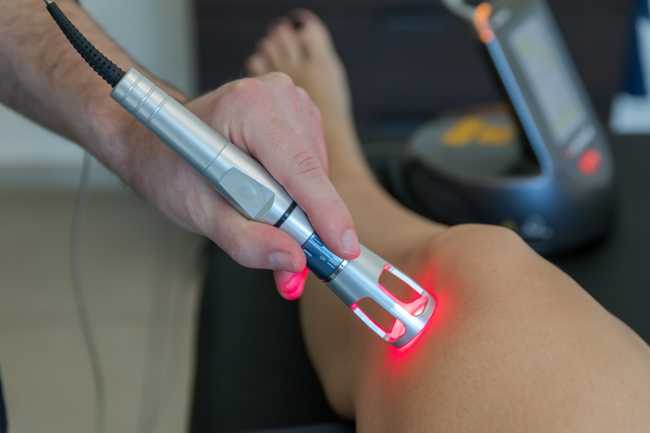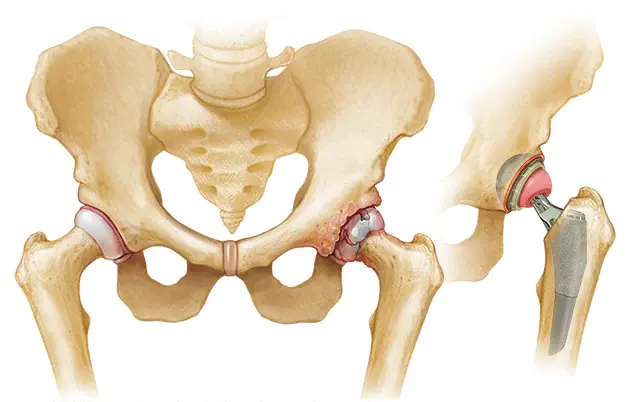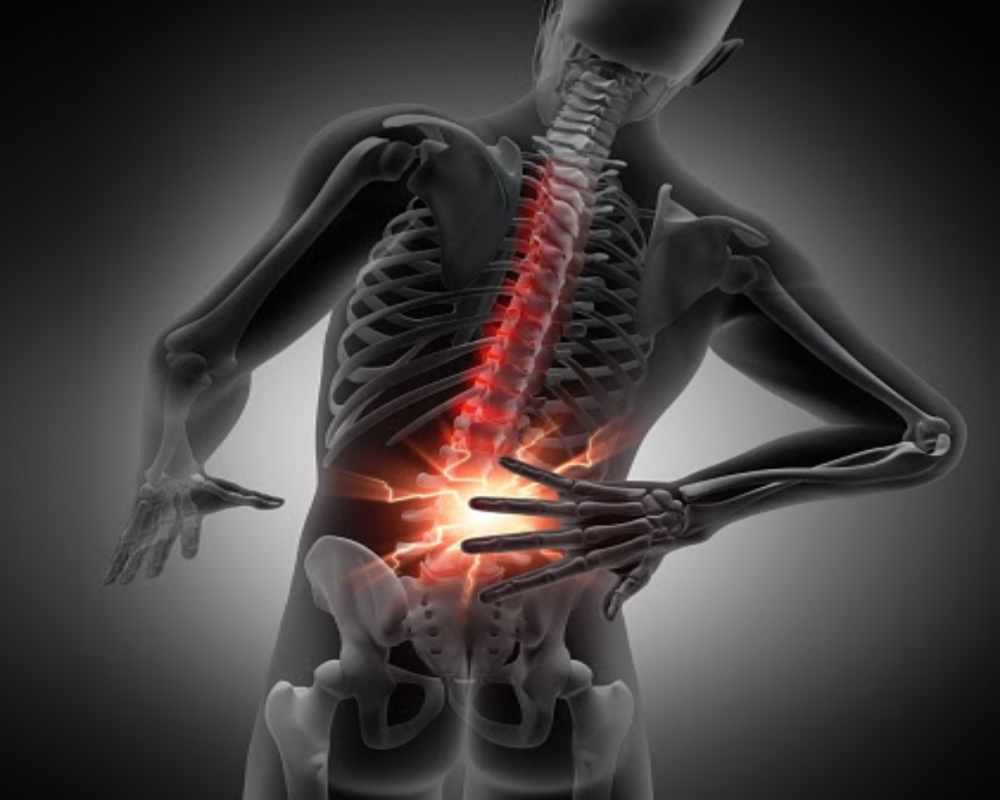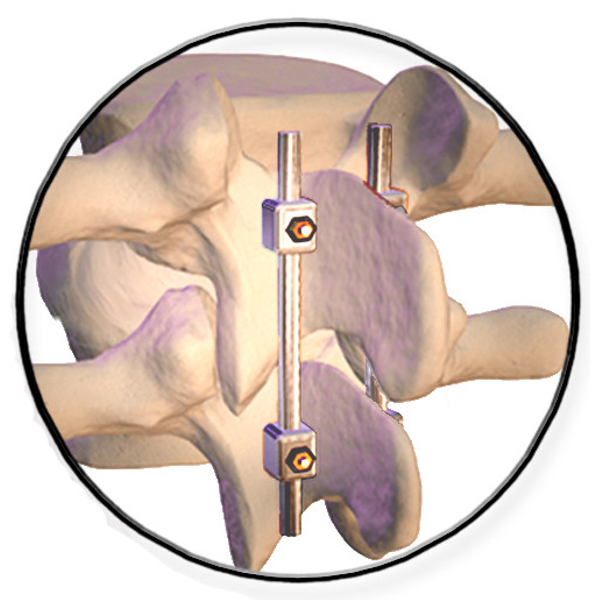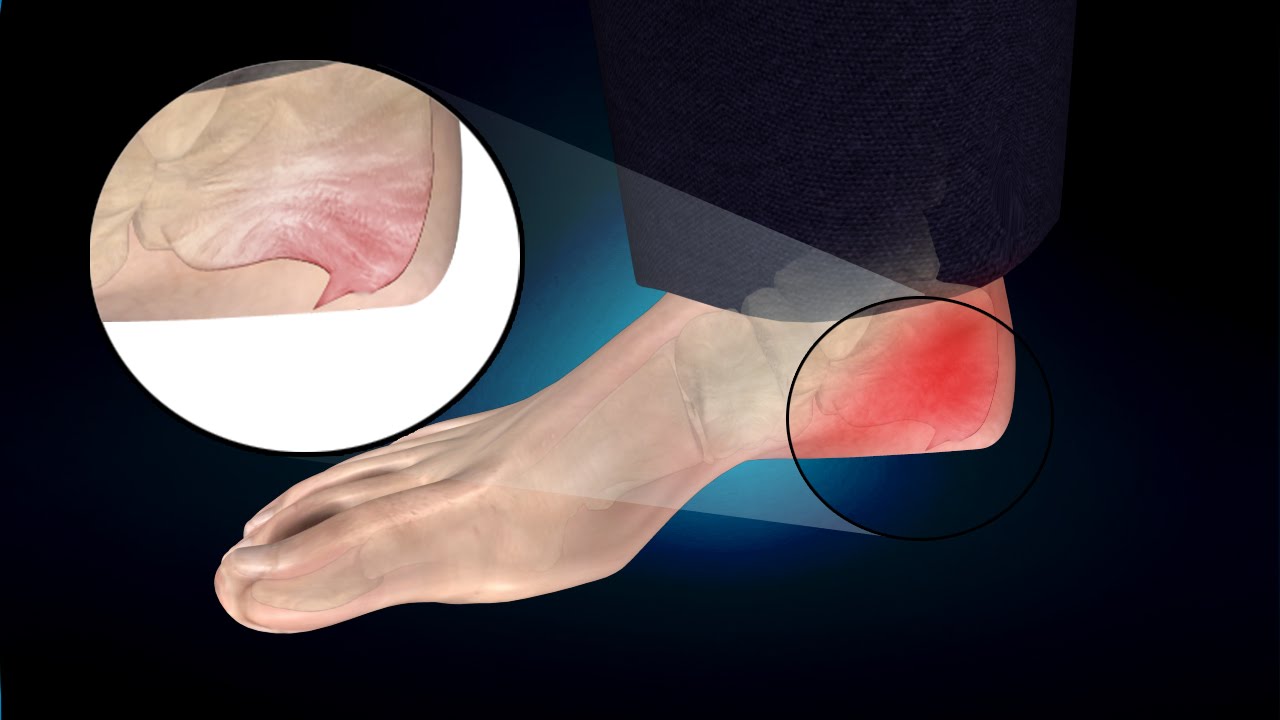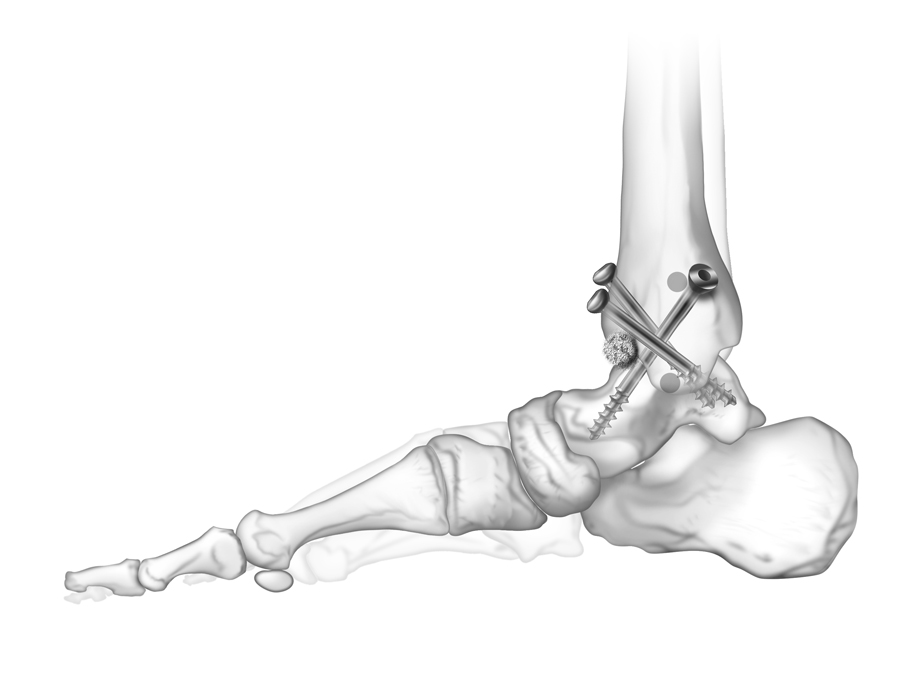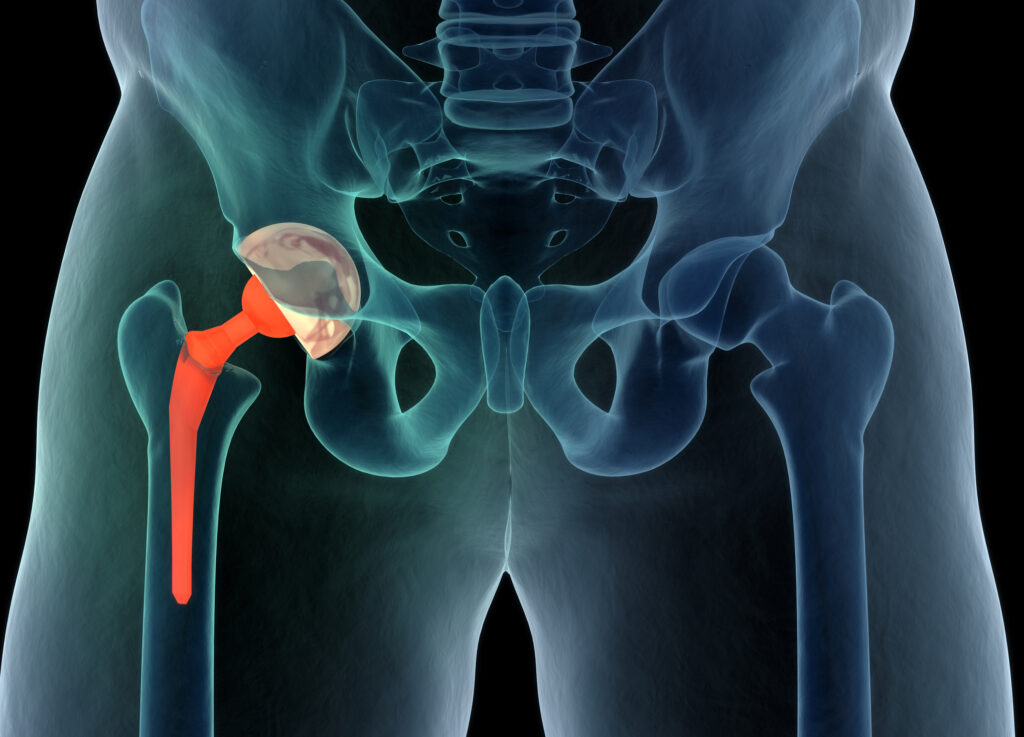What is the duration of a cervical disc surgery? And what is its success rate?

What is the duration of a cervical disc surgery?
Duration of Cervical Disc Surgery: Techniques and Developments
Cervical disc surgery is one of the common surgical procedures performed to treat spinal issues in the neck. This type of surgery involves removing part of the intervertebral disc to alleviate pain and restore movement. In this article, we will learn about the duration of cervical disc surgery and how modern surgical techniques and developments have impacted this process.
The Traditional Duration of Cervical Disc Surgery:
The duration of cervical disc surgery depends on several factors including the complexity of the medical case and the number of vertebrae requiring surgical intervention. Generally, the procedure can take approximately an hour and a half to three hours. After the surgery, the patient is required to stay in the hospital for a brief period ranging from one day to several days, depending on the surgeon’s instructions and the patient’s condition.
Developments in Cervical Disc Surgery Techniques:
Over the years, cervical disc surgery has undergone significant developments in the techniques and tools used. These advancements have contributed to reducing the duration of the surgery and increasing its effectiveness. Here are some of the modern techniques and developments:
- Endoscopic Surgery: This technique represents a significant advancement in the field of cervical disc surgery. Small tubes and cameras are used to precisely access the target area. This helps to significantly reduce pain and recovery time.
- Laser Use: Lasers are sometimes used to vaporize parts of the damaged disc without the need for traditional surgical intervention. This technique reduces surgical complications and speeds up the recovery process.
- Artificial Disc Replacement: In some cases, the damaged disc can be replaced with artificial ones. This technique allows for the elimination of recurring disc problems and enhances the restoration of the neck’s normal function.
Recovery and Postoperative Therapy:
After undergoing cervical disc surgery, the patient needs a recovery period to heal. This period includes rest and taking medications prescribed by the doctor to manage pain and swelling. Patients are usually encouraged to participate in physical therapy sessions to regain neck movement and strengthen the surrounding muscles.
Cervical disc surgery remains an important surgical procedure for treating spinal problems in the neck. The duration of the surgery has significantly decreased thanks to advanced techniques, and these developments help improve surgical outcomes and reduce complications. If you need to undergo cervical disc surgery, you should consult a qualified spine surgeon and benefit from medical advice to understand the complexity of your case and the treatment options available.
Is cervical disc surgery difficult?
Cervical disc surgery is a surgical procedure aimed at treating spinal problems in the neck area. The operation involves removing part of the disc between the cervical vertebrae to relieve pain and restore movement. But is this procedure difficult? Let’s explore different aspects to answer this question.
Surgical Techniques:
The difficulty of cervical disc surgery depends on several factors, including the surgical technique used. In recent years, this surgery has made significant advances in the techniques employed, making the operation less difficult than before. Endoscopic surgical techniques, the use of lasers, and artificial disc implantation have simplified the procedure and significantly reduced pain and swelling.
Medical Condition Assessment:
The difficulty of the surgery also depends on the patient’s condition and its complexity. In certain cases, such as the presence of a significant herniated disc or cervical spinal stenosis, the surgery may be more complex. If the patient has other health problems, such as heart disease or diabetes, it may also be necessary to manage these issues during the surgery.
Possible Complications:
Of course, potential complications can increase the difficulty of the surgery. For example, if the operation is not performed carefully, damage to the nerves or blood vessels surrounding the neck could occur, which can cause serious problems. However, with good care and the use of modern techniques, these risks can be minimized.
Other Factors Affecting Difficulty:
In addition to the above, there are other factors that play a role in determining the difficulty of cervical disc surgery. These include the skill of the surgeon and the medical team, hospital facilities, and the technologies used. Therefore, the patient should choose a qualified surgeon who specializes in this type of surgery.
In general, it can be said that cervical disc surgery is not necessarily difficult if performed with care and using the appropriate techniques. If you need this surgery, you should consult a specialist and discuss the details of the operation and its complexity in your personal case. With good care and proper preparation, this surgery can be safe and effective in treating neck spine problems.
How many days of rest after cervical disc surgery?
Cervical disc surgery is a surgical procedure performed to treat problems of the spine in the neck area. Once this operation is successfully completed, a correct understanding of the rest period after surgery is essential to ensure proper recovery. The duration of the rest period depends on several factors, including the complexity of the surgery, the patient’s overall health condition, and the surgeon’s instructions.
When does the rest period begin?
After the cervical disc surgery, the patient will be transferred to the Recovery Room where they will be monitored by a qualified medical team. Patients typically stay in this room for a few hours to ensure their condition is stable after the surgery. The patient is then moved to their room in the hospital for further care and monitoring.
Length of Hospital Stay:
The length of hospital stay after a cervical disc surgery depends on several factors, including the surgeon’s instructions and the patient’s condition. Typically, a patient can expect to stay in the hospital for a period ranging from one day to several days. It is encouraged for the patient to remain in the hospital until they have achieved medical stability and are able to manage pain and symptoms associated with the operation well.
Home Recovery Period:
After being discharged from the hospital, the patient must adhere to a home recovery period. The duration of this period can vary depending on the surgeon’s instructions and the patient’s condition. Typically, it is preferable for the patient to stay in bed and reduce physical activity for a period ranging from two weeks to two months, depending on the complexity of the surgery and the patient’s condition.
Pain Management and Physical Therapy:
During the home recovery period, the patient will need to take medications prescribed by the doctor to manage pain and inflammation. The patient will also need to engage in physical therapy sessions to strengthen the neck muscles and restore mobility.
Return to Normal Activities:
In general, the patient can gradually return to their daily activities after the recovery period. The patient should consult the surgeon about when they can start engaging in physical activities and return to work.
The rest period after cervical disc surgery depends on many factors and varies from case to case. It is important that the patient follows the surgeon’s instructions and cooperates with the healthcare team to ensure proper recovery and optimal management of potential complications after surgery.
When is Surgical Intervention Necessary for a Cervical Disc?
The cervical disc is an important part of the spine and plays a vital role in supporting and protecting the spinal cord and the nerves that pass through it. When the cervical disc is under pressure or damaged due to aging, injury, or a specific medical condition, there may be a need for surgical intervention. In this article, we will address when surgical intervention is considered necessary for cervical disc conditions.
Symptoms of Cervical Disc:
First, before considering surgical intervention, it is important to understand the symptoms that can indicate a problem with the cervical disc. Some common symptoms that may require attention include:
- Pain in the neck, shoulders, and arms.
- Muscle weakness in the upper extremities.
- Impaired hand control.
- Loss of bowel and bladder control (in rare cases).
Assessment of the Condition:
- When a patient experiences these symptoms and seeks treatment, it is crucial to consult a spine specialist. The physician must perform a thorough evaluation of the condition, which may include a physical examination, medical history, and the use of imaging techniques such as X-rays and magnetic resonance imaging (MRI). This assessment helps to determine the severity of the issue and its impact on the patient’s life.
Factors Necessitating Surgical Intervention:
- Severe pain and lack of response to medical treatment: If a patient is suffering from intense neck pain and symptoms do not respond to conservative medical treatments such as medication and physical therapy, surgery might be necessary.
- Acute disc herniation: If there is a severe disc herniation pressing on the spinal cord or major nerves causing significant weakness or loss of motor or sensory functions, urgent surgical intervention may be necessary.
- Numbness and loss of sensation: Chronic numbness in the hands or fingers, or a loss of sensation, may indicate nerve compression and require evaluation and surgical intervention.
- Spinal canal stenosis: In some cases, spinal canal stenosis in the neck may develop and lead to pressure on the spinal cord, necessitating surgical intervention to widen the canal and relieve pressure.
Consultation and Decision Making:
- Decisions regarding surgical intervention for neck disc issues are made based on the patient’s condition and the specialist surgeon’s assessment. The patient should be involved in this decision and consult the physician in detail about the potential benefits, risks, and available options. Depending on the case, surgical intervention may be necessary to improve the patient’s quality of life, alleviate pain and numbness, and restore normal bodily functions.
Cost of Neck Disc Surgery in Egypt:
- Neck disc surgery is an important surgical procedure performed to treat spinal problems in the neck area. The cost of this operation in Egypt varies based on several factors, including the complexity of the case, the location of the procedure, and healthcare facility costs. In this article, we will provide an overview of the factors that determine the cost of neck disc surgery in Egypt and what can generally be expected.
Factors Determining the Cost of the Surgery:
- Surgical technique used: The techniques for neck disc surgery and their costs vary. For example, the use of endoscopic or laser surgery techniques can be more expensive than traditional surgery.
- Number of vertebrae affected: In some cases, surgery may be needed on only one vertebra, while more complex cases may require operations on several vertebrae. Each additional vertebra may increase the cost of the operation.
- Location of surgery: The cost of surgery also varies by geographic area within Egypt. For example, costs in major cities like Cairo may be higher than in less expensive cities.
- Hospital costs: The price of the surgery is also affected by the costs of the hospital and general medical care. Hospitals with modern facilities and advanced services usually cost more than less well-equipped hospitals.
- Cost of consultations and medical examinations: Patients should also consider the cost of pre- and post-operative consultations and necessary medical examinations.
- Health insurance costs: If you have health insurance, it may cover a significant part of the surgery costs. However, insurance coverage and payment rates vary from one policy to another.
Financial Preparedness:
If you plan to undergo neck disc surgery in Egypt, it’s important to plan financially in advance. You may need to consult a health insurance specialist to understand the details of your insurance coverage and whether you will have to bear any costs not covered by insurance. You can also speak with local healthcare providers to get a specific cost estimate based on your personal situation.
There are multiple factors that determine the cost of neck disc surgery in Egypt, including the surgical technique, the location of the surgery, the number of vertebrae affected, and the costs of the hospital and healthcare. It is important to have an accurate understanding of the expected costs and to plan financially well before proceeding with the operation.
What is the success rate of neck disc surgery?
Neck disc surgery is a surgical procedure performed to treat spinal issues in the neck area and can be of significant importance for individuals suffering from neck pain, muscle weakness, disc herniations, and similar issues. However, success in this type of surgery depends on many factors, and it’s not easy to determine a fixed success rate. In this article, we will discuss the factors affecting the success rate of neck disc surgery and how patients can contribute to increasing the chances of success.
Factors affecting the success of the operation:
- General condition of the patient: The patient’s overall health plays a crucial role in the success of the operation. If the patient suffers from chronic health conditions like diabetes, heart problems, or smoking, there may be a higher risk for the surgery.
- Accuracy of diagnosis and assessment by the surgeon: The diagnosis and the surgeon’s assessment must be meticulous. The surgeon must determine whether the operation is suitable for the patient’s individual condition and identify any modifications that should be made.
- Surgical techniques and equipment: The surgical techniques used and the level of medical equipment in the hospital can significantly impact the success of the operation. Utilizing the latest technologies and tools can increase the chances of success.
- Skill of the surgeon: The experience and skill of the surgeon have a significant effect on the operation’s success. Surgeons with high expertise usually handle potential problems during surgery better.
- Adherence to post-surgery instructions: After the operation, the patient must carefully comply with the surgeon’s instructions. This includes sufficient rest, engaging in physical therapy, and taking medications regularly.
Success rate of neck disc surgery:
Although there isn’t a fixed success rate for neck disc surgery due to variations in cases and surrounding factors, many studies suggest that the majority of patients experience significant improvement in pain and symptoms after the operation.
The operation can generally be successful within a range of approximately 70% to 90% or more, but it must be noted that these percentages depend on the above-mentioned factors.
Expectations after the surgery:
After the operation, patients can expect a gradual improvement in pain and symptoms. The recovery period may last several weeks or even months, but many patients live a normal and active life after the procedure.
Neck disc surgery can be a successful procedure that improves the patient’s quality of life and alleviates pain and symptoms. However, the patient must always comply with the surgeon’s instructions and actively participate in the treatment process and be prepared for the recovery period.
Can neck disc issues be healed without surgery?
A neck disc is a condition that affects the spinal column in the neck area and may cause pain and symptoms such as neck, shoulder, and arm pain, numbness, and weakness. When diagnosed with this condition, many wonder if they can recover from a neck disc without needing surgery. In this article, we will explore non-surgical treatments and options for neck disc issues and whether healing is possible without surgery.
Non-surgical treatments for neck disc issues:
- Physical therapy and exercise: Physical therapy can be beneficial for patients with neck disc issues. It strengthens the neck muscles and helps improve the flexibility of the spine and reduce pain. The physical therapy program should be individually designed to suit the patient’s condition.
- Medications: Medications can provide relief from the pain and inflammation associated with neck disc issues. These may include pain relievers such as non-steroidal anti-inflammatory drugs (NSAIDs) and muscle relaxants.
- Use of braces and medical tapes: In some cases, braces or medical tapes can be used to support the neck and relieve pressure on the damaged disc.
- Massage and complementary therapies: Massage and some complementary therapies such as cupping therapy, acupuncture, and experimental acupressure may have a positive effect on relieving pain and improving blood flow to the affected areas.
- Lifestyle changes: Lifestyle changes can help reduce pressure on the neck. This includes maintaining proper sitting posture, exercising regularly, and avoiding activities that harm the neck.
Can healing occur without surgery?
The possibility of healing from neck disc issues without surgery depends on several factors, including the severity of the condition and the patient’s response to non-surgical treatments. In many cases, significant improvement and relief of pain and symptoms can be achieved through these treatments.
However, surgery may be necessary in some cases when non-surgical treatments are not effective, or when there is significant narrowing of the spinal canal or pressure on the spinal cord. It is always advisable to consult a spine specialist to assess the condition and make the appropriate decision based on the patient’s specific situation.
Neck disc issues are a common condition that can cause painful and disturbing symptoms, and significant improvement is usually achieved through non-surgical treatments and lifestyle changes. However, it is always important to consult a doctor to assess the situation and choose the most suitable treatment for each individual case.
Does a neck disc affect the brain?
A neck disc is a condition that affects the spine in the neck area, typically resulting from damage or deterioration of the discs that sit between the cervical vertebrae. This condition can cause pain and symptoms in the neck, shoulders, and arms, but does it have an effect on the brain? In this article, we will explore how a neck disc can affect the brain and the nervous system.
Understanding Neck Disc Issues:
Before discussing the impact of neck discs on the brain, it is necessary to understand what neck disc issues are and how they develop. The discs between the cervical vertebrae consist of soft tissue that serves as a shock absorber to absorb pressure and provide protection for the spine. These discs can become damaged over time due to aging, environmental impacts, and excess pressure on the neck.
The Impact of Neck Disc Issues on the Brain:
The neck disc itself does not have a direct effect on the brain. However, the pain and symptoms resulting from neck disc issues can affect the functioning of the nervous system and thus have an impact on the brain and the central nervous system in general. There are several ways that neck disc issues can affect the brain:
Spinal canal narrowing: In severe cases of neck disc issues, significant narrowing of the spinal canal can lead to pressure on the spinal cord. This pressure can interfere with the transmission of nerve signals between the body and the brain, leading to negative effects on sensory and motor functions. Neck pain and muscle tension: Severe neck and shoulder pain due to neck disc issues can lead to tension and strain in the neck and shoulder muscles. This muscle tension can result in pain and symptoms that spread to the back of the head, including headaches. The effect of pain on concentration and mood: Chronic pain from neck disc issues can lead to distractions and reduced concentration. It can also affect mood and cause depression and anxiety.
Treatment and Measures:
The impact of cervical disc disease depends on the stage of the condition and the severity of symptoms. In many cases, significant improvement can be achieved through non-surgical treatments such as physical therapy, medications, and occupational therapy techniques. Patients should consult a spine specialist to assess their condition and develop an appropriate treatment plan.
Although cervical disc disease does not directly affect the brain, the pain and resulting symptoms can affect the function of the nervous system and the body in general. Patients should receive proper treatment to manage pain, improve the quality of their life, and maintain their overall health.
Post-Cervical Disc Surgery Symptoms?
Post-Cervical Disc Surgery Symptoms: Pain and Recovery
Cervical disc surgery is a surgical procedure aimed at treating spinal problems in the neck area, which can include disc herniations, nerve compression, and chronic pain. After the surgery, the patient enters a recovery phase that may be accompanied by post-operative symptoms. In this article, we will detail the common symptoms after cervical disc surgery and how to manage them.
- Pain and Swelling:
Pain and swelling are common symptoms after cervical disc surgery. The pain can be present in the surgical area and extend to the neck and shoulders. The severity of the pain depends on the type of surgery and the advancement of the condition. Swelling is also common and can last for several weeks.
- Weakness and Numbness:
After surgery, symptoms such as weakness and numbness in the arms or hands may appear. These symptoms are often temporary and result from the temporary impact on the nerves during surgery. These symptoms tend to improve over time with exercises and physical therapy.
- Difficulty in Control and Movement:
It is possible that difficulty in naturally controlling and moving the neck may occur after surgery. Excessive movements and pressure on the neck and shoulders should be avoided during the recovery period.
- Constipation and Oozing Discharges:
Problems with the digestive system such as constipation or oozing discharges may arise after surgery. These issues depend on the type of surgery, the use of strong painkillers, and the side effects of the medications.
- Fatigue and Stress:
Fatigue and stress are common during the recovery period. The body needs time to recover from the surgery and heal tissues, which can lead to feelings of tiredness and stress.
- Sleep Problems:
Pain and discomfort while sleeping can cause sleep problems after surgery. Using special neck pillows and avoiding uncomfortable sleeping positions can help improve sleep quality.
- Depression and Anxiety:
In some cases, prolonged post-operative symptoms, pain, and stress can lead to feelings of depression and anxiety. It is important to seek psychological support and talk to healthcare professionals if these symptoms intensify.
Consulting a Doctor:
If you are experiencing symptoms after cervical disc surgery, it is important to consult the treating physician for evaluation and advice. The doctor will provide the necessary guidance and instructions to expedite the recovery process and alleviate symptoms. Remember that adherence to the doctor’s instructions and following up with treatment and physical therapy can help improve the overall recovery experience.
The Best Doctor for Cervical Disc Surgery in Cairo
Dr. Amr Amal Amin is a consultant orthopedic and joint surgeon in Cairo and cervical disc disease is known to be the cartilage that separates the cervical vertebrae. This cartilage can be damaged due to many reasons, including trauma, aging, stress, and arthritis, and damage to the cervical cartilage can cause a variety of symptoms, including:
Pain Numbness Tingling Muscle weakness Difficulty moving the head
The treatment of cervical disc damage depends on the severity of the symptoms and their cause. In mild cases, non-surgical treatment can help alleviate symptoms, such as: rest, anti-inflammatory medications, physical therapy, and stretching exercises. In more severe cases, the doctor may resort to surgical treatment. The type of surgery depends on the cause of the cervical disc damage and may include: removal of the damaged disc, replacement of the lost disc, or stabilization of the vertebrae.
Dr. Amr Amal Amin has extensive experience in performing all types of surgical operations to treat cervical disc damage. He uses the latest techniques and medical procedures to ensure safe and effective results.
Regarding endoscopic cervical disc surgery, Dr. Amr Amal is distinguished by his great experience in performing this type of surgical operation. Endoscopic cervical disc surgery uses small incisions to access the affected vertebrae. This procedure has several advantages, including:
- Less painful than open surgical procedures.
- Shorter recovery period.
- Reduced risk of infection.
Here are some detailed information about Dr. Amr Amal’s role in endoscopic cervical disc surgery:
- He is distinguished by his vast experience in performing endoscopic cervical disc surgery.
- He uses the latest techniques and medical procedures in conducting this surgery.
- He possesses high skills in performing precise endoscopic surgical operations.
- He has a track record of successes in performing endoscopic cervical disc surgery.

